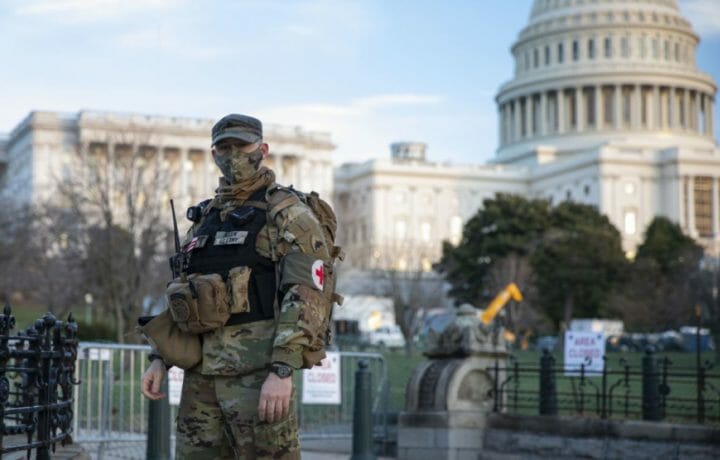The topic of domestic terrorism around the security clearance process has been a hot topic since the January 6 Capitol Hill riot, with members of congress calling on the FBI, the military, and security clearance policymakers to ensure those who participate in acts of domestic terrorism don’t also find their way into a national security career.
The legislation, HR 5513, would amend the 1947 National Security Act, and directs the Security Executive Agent (the Office of the Director of National Intelligence) to ensure the adjudicative guidelines include domestic terrorism, and that the SF-86 includes questions about terrorism.
Domestic Terrorism and Security Clearances
The ‘No Clearance for Domestic Terrorists’ Act is co-sponsored by House Representatives Jason Crow, Lynn Cheney, and Stephanie Murphy. This isn’t the first time Murphy has proposed legislation to reform the clearance process. Following the Capitol Hill Riots, Murphy published proposed legislation, the ‘Security Clearance Improvement Act of 2021.’ That legislation was very specific to the events of Jan. 6, and specifically required asking security clearance applicants about their participation in Stop the Steal events.
HR 5513 has a broader focus, and perhaps a clearer path to making its way to final law. But whether it would require anything new to happen in the security clearance process remains unclear. Terrorism is already a topic included in both the adjudicative guidelines and the SF-86 application.
Domestic Terrorism in the Adjudicative Guidelines
Domestic terrorism in the adjudicative guidelines falls under the Allegiance to the United States adjudicative criteria. The guideline specifically states:
Conditions that could raise a security concern and may be disqualifying include:
(a) involvement in, support of, training to commit, or advocacy of any act of sabotage, espionage, treason, terrorism, or sedition against the United States of America;
(b) association or sympathy with persons who are attempting to commit, or who are committing, any of the above acts;
(c) association or sympathy with persons or organizations that advocate, threaten, or use force or violence, or use any other illegal or unconstitutional means, in an effort to:
(1) overthrow or influence the government of the United States or any state or local government;
(2) prevent Federal, state, or local government personnel from performing their official duties;
(3) gain retribution for perceived wrongs caused by the Federal, state, or local government;
(4) prevent others from exercising their rights under the Constitution or laws of the United States or of any state.
Free speech remains protected by the First Amendment. When speech turns into an act (like breaking into the Capitol Building) – that’s when the adjudicative guideline steps in.
Domestic Terrorism in the SF-86
The SF-86 also currently addresses terrorism (which would include acts of domestic terrorism). Question 29 asks: Are you now or have you EVER been a member of an organization dedicated to terrorism, either with an awareness of the organization’s dedication to that end, or with the specific intent to further such activities?
The question goes on to act if you’ve associated with others who have been involved in activities to further terrorism.
Domestic Terrorism vs. Terrorism
Even if the ‘No Clearances for Domestic Terrorists Act’ is passed, it would appear that the Security Executive Agent could already put a ‘mission accomplished’ stamp on the requirement. Whether or not the security clearance process currently does as well as it could in vetting out domestic terrorists is something both military and security clearance leaders have already been asking, and time has already been committed to considering what questions need to be asked in the course of a security clearance investigation.
If you hold a federal security clearance – and particularly if you ever undergo a polygraph – expect to be asked about terrorism and specifically asks of domestic terrorism. And where freedom of speech crosses over into actions that could be viewed as overthrowing the government, expect a roadblock in your path to a security clearance career.




